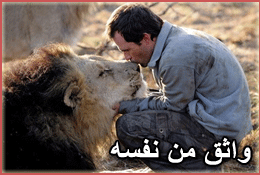-
Thanks Karen, the transcripts have been corrected
-
"Waathiq min nafsuh" could be rendered literally as "self-confident".
-
You said that the name Adam is derived from “adamah”, and that “adamah” is an Arabic word for “skin”. As far as I know, “adamah” is a Hebrew word for “earth” or “ground”. It is allegedly related to other Hebrew words meaning “red” or “blood”. Incidentally, the Arabic and Hebrew words for "blood" are identical (ﺪﻡ).
The Arabic noun “'adiim” (ﺃﺪﻴﻡ) has been recorded in the Lessan dictionaries and in Steingass’s Arabic-English dictionary. According to the Lessan dictionaries, “'adiim” (ﺃﺪﻴﻡ) means “skin”, but Steingass says it means “earth”. According to Steingass, “'adiim” (ﺃﺪﻴﻡ) has a plural: “adam” (ﺍﺪﻡ).
If we are to believe Steingass, “adam” (ﺍﺪﻡ) can also be a singular noun or a singular adjective. The noun can denote human skin, a leathern pipe, a date or a tomb, while the adjective, whose plural is “awaadim”, can mean “reddish”, “brown” or “white”. I can see the connection between “red” and “brown”, and I’m not surprised that a colour adjective has been derived from a word meaning “earth”, but there is an enormous difference between “red” and “white”.
This is all rather bewildering. Have you ever consulted Steingass’s dictionary? Is it reliable? -
hi desmond, the letter d is not turning up here on your arabic text, plus no mada.
-
@ berry
Sorry, berry. I've keyed in all the letters, and I can see them on my screen. A few months ago, it was the final letters that tended to disappear. Only some people in the USA could see everything I'd typed. -
Is there an idiom in Arabic along the lines of "to beat one's own drum/blow one's own trumpet", i.e. boast of one's own skills? Thanks in advance.
-
@ Karen
The verb “baaha” (ﺒﺎﻫﻰ) , which means “to boast”, might come in useful here. “He boasts” is “yubaahy” (ﻴﺒﺎﻫﻰ). I’ll try to give you some idea of what the words sound like. “BAAha” is stressed on the first syllable. “Baa” sounds like “ba” in Ger. “baden”, and “ha” is like “ha” in Ger. “haben”. “YuBAAhy” is stressed on the second syllable. “Y” sounds like “y” in Engl. “you”, “u” like Fr. “ou”, “baa” like “ba” in Ger. “baden”, and “hy” like Engl. “he”.
Surprisingly, “baaha” has not yet been recorded in the Lessan dictionaries. I’ve come across some other Arabic words for “boast”, but I’m not sure how they are pronounced.
Best wishes
Desmond
-
Thank you for taking the time to respond, Desmond.
-
Interesting discussion regarding Adam. The 'earth' meaning would fit with the idea of the first man being created from clay - from the Earth's crust (or skin) perhaps! Of course, etymology is fraught with problems, particularly as one goes back into the mists of time and, even in more recent times, some etymologies have been shown to have been incorrect, subsequently applied. As human beings we are drawn to seek patterns and meaning and, at times, misapprehend.
Meanings also shift with time, sometimes even to the opposite to what they originally signified. In English, 'nice' originally meant 'foolish, stupid, senseless' ie dim, but came to mean something appealing although today it is sometimes, once again, used pejoratively, according to context.
Context is so often the key, particularly in some languages as I found with classical Tibetan where regular structure can be elusive and there are various حتى like particles that have a variety meaning!
Whilst acknowledging the importance of grammar, ultimately, words are more within the realm of poetry than science!
Lower Intermediate - Confident person
| April 19th, 2011 | 10 comments |
Most of us consider confidence an attractive characteristic,as long as it doesn't border too much on arrogance. On the other hand, someone with very low self esteem is considered unattractive. We discuss the confidence trait and the useful vocabulary involved.

|
 MP3 Download MP3 Download
 PDF Transcript PDF Transcript
|
 Audio Transcript Audio Transcript
 Exercise Exercise
|
|
| Basic | Premium | |
|---|---|---|
Join the Discussion

Random Word
بريد |
|

Advertisement



حتى يتقدم وينجح currently reads 7attaa yanja7 wa yataqaddam. Take care and keep up the fine work.